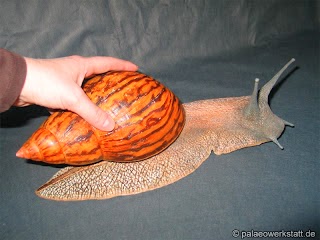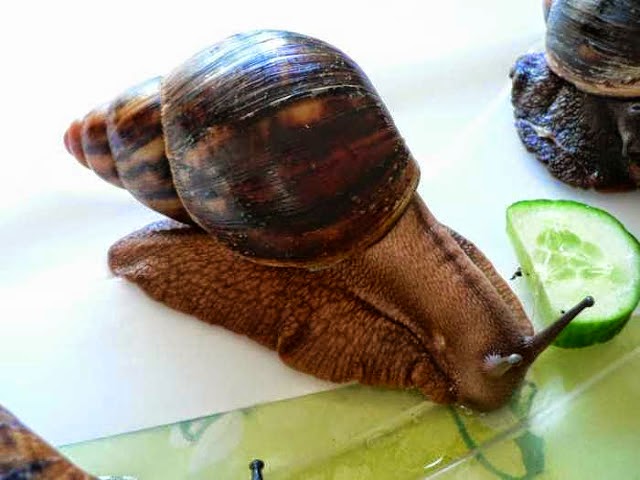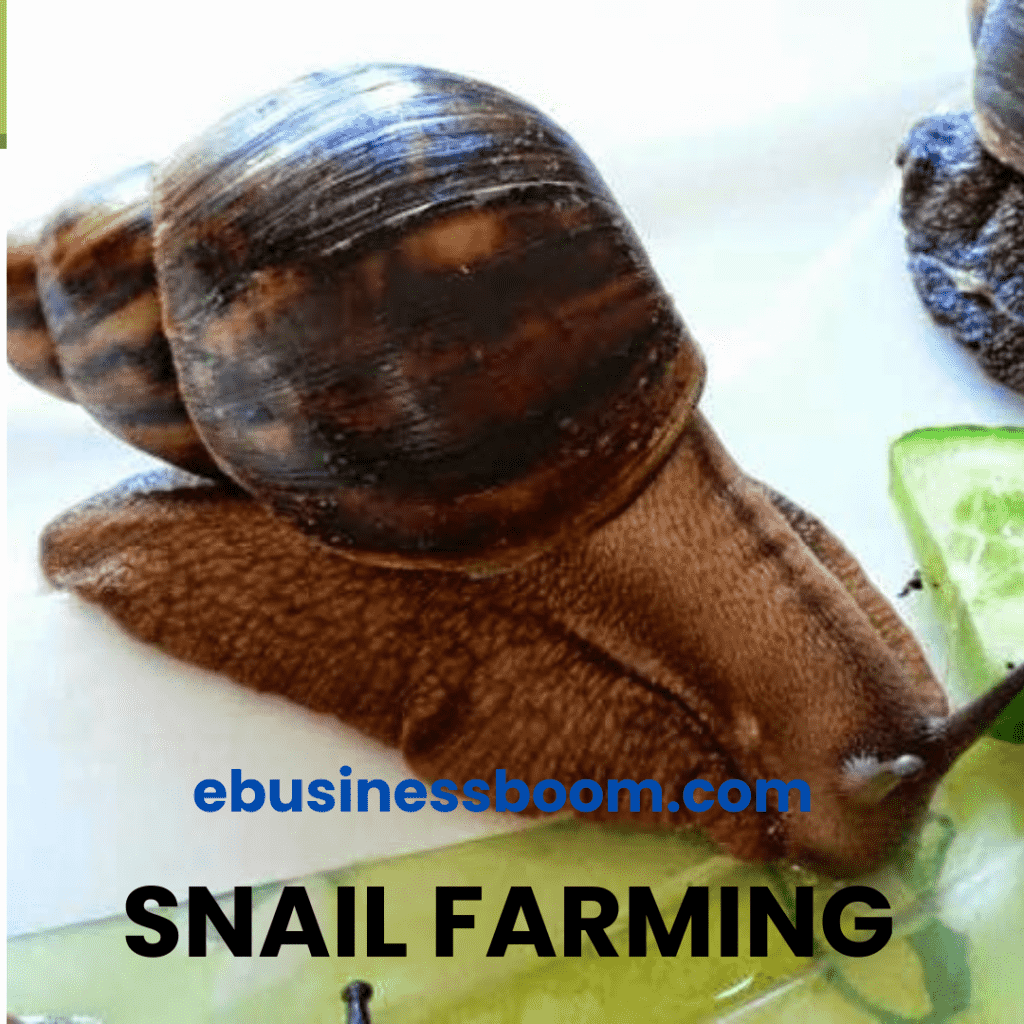Snail Farming
In Nigeria, snail farming also known as Heliculture is regarded as one of the most profitable agricultural businesses you can set up with little funding. However, it is one of the most neglected aspects of animal husbandry in Nigeria. One of the best opportunities to make money quickly is through farming. But why aren’t Africans involved in this lucrative animal husbandry? maybe because of little or no knowledge about it. That is why we dedicated this comprehensive blog post to explain about Snail Farming.
In most of the developed countries, snail farming is big business, providing many opportunities for employment. Snails are common in numerous stores in the UK, USA, Australia etc. The majority of Africans continue to hold a belief that snails can only be gathered in the forest, it has long been culture and tradition to go and pick snails in the bushes when it rains. People therefore find it difficult to accept the fact that snails may truly be kept and rear at home like other poultry animals.
Similar to many other parts of farming and agriculture in these africa nations, Africans have not yet realised how lucrative this snail business is.
What is Snail Farming?
Snail farming in Nigeria.
How Profitable is Snail Farming
Snail farming, also known as heliculture, is a lucrative agricultural venture that is gaining popularity in Nigeria. With its favourable climatic conditions and a large domestic and international demand for snail products, Nigeria provides a fertile ground for entrepreneurs looking to start a snail farming business. In this comprehensive guide, we will walk you through the essential steps and considerations for starting a successful snail farm in Nigeria.
You will be on your way to creating your own snail farming enterprise after reading this article.
Let start with Species Selection
Suitable Snail Species for Snail farming.
Snail Species :
There are several species of snails suitable for farming, but in Nigeria, the most common species are the African giant land snail (Achatina fulica), the Archachatina marginata and Archachatina Archachatina .
- Achatina Achatina A type of very large snails known as the “giant tiger land snail” are hemraphrodites, which means they have both female and male reproductive systems. Although they are prolific breeders, two snails are still required for breeding. Due to its profitability, Achatina-Achatina is excellent for commercialization as well. This is as a result of how many eggs it lays all at once. Three times a year, each achatina produces clutches of 300–500 eggs. As a result of this, if you start a farm with roughly 100 snails, you would have about 90,000 to 150,000 snails in a year based on the quantity of eggs they lay.

- Archachatina Marginata common name the giant West African snail. They can grow up to 20cm long, and live up to 7-10 years. most farmers desire this species because it grows so big to become the biggest snail species in the world. has it’s origin from Nigeria. It has high yield capacity. They are easy to find in Nigeria.

- Archachatina Fulica known as The East African land snail It is the smallest in size among all the desirable species for rearing in Africa. Adults of the species maybe more than 20cm in shell length but generally average about 8 to 15cm. The average weight of the snail is approximately 35 grams.
It has high yield capacity. They are easy to find in Nigeria.
All these above-mentioned species are adaptable to the Nigerian climate and have a high growth rate. Conduct thorough research on each species, considering factors such as market demand, growth rate, feeding habits, and environmental requirements before making a choice.
Also check: Fish Farming in Nigeria
Snail Farm Setup and Housing:
Snails require suitable housing to thrive. Construct a snailry with appropriate dimensions, considering factors such as ventilation, protection from predators, and temperature control. Snails are sensitive to temperature and humidity, so ensure that the snailery maintains a consistent and optimal environment. Provide suitable bedding material, such as soil, coconut coir, or compost, and create hiding places for the snails to ensure their comfort and well-being.
Snail Feeding and Nutrition :
Snails are herbivores and feed on a variety of plant materials. Provide a balanced diet that includes fresh fruits, vegetables, and leaves. Snails require calcium for shell development, so incorporate calcium-rich sources like eggshells or limestone in their diet. Avoid feeding them toxic or contaminated plants, as this can harm the snails’ health. Regularly monitor their feeding habits and adjust their diet accordingly to ensure proper nutrition and growth.
Snail Breeding and Reproduction :
Understanding the breeding and reproduction process is essential for the sustainability of your snail farm. Snails are hermaphrodites, meaning they have both male and female reproductive organs. However, they still require a mate for reproduction. Create a favorable environment for breeding, ensuring optimal temperature, humidity, and moisture levels. Monitor the mating process closely and provide suitable conditions for egg deposition and hatching.
Disease and Pest Management in Snail Farming :
Disease and pest management are crucial for the success of your snail farm. Implement strict biosecurity measures to prevent the introduction and spread of diseases. Regularly inspect your snails for signs of illness or parasites, and consult with a veterinarian experienced in snail farming for advice on disease prevention and treatment. Additionally, protect your snailery from predators such as rodents and birds that may pose a threat to your snails.
Marketing and Sales
Developing a marketing strategy is crucial for selling your snail products profitably. Identify your target market, such as local restaurants, hotels, supermarkets, or direct consumers. Create a strong brand presence by promoting the nutritional benefits and quality of your snail products. Utilize online platforms, social media, and local marketplaces to reach a wider audience. Establish good relationships with potential buyers and offer competitive pricing and reliable delivery to build a loyal customer base.
Conclusion:
Snail farming presents a lucrative opportunity for entrepreneurs in Nigeria. By understanding the industry, selecting the right species, creating suitable housing, ensuring proper nutrition and breeding, managing diseases and pests, and implementing effective marketing strategies, you can start and run a successful snail farming business. Remember, snail farming requires patience, dedication, and a willingness to continuously learn and improve. With the right knowledge and a passion for snail farming, you can tap into the growing demand for snail products and establish a profitable venture in Nigeria. Good luck on your snail farming journey!





One Response